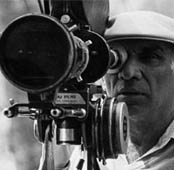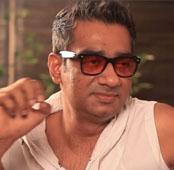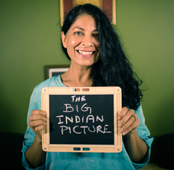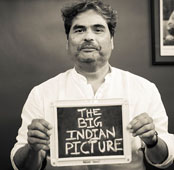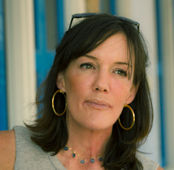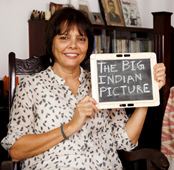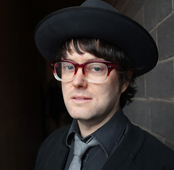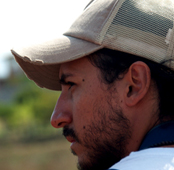-
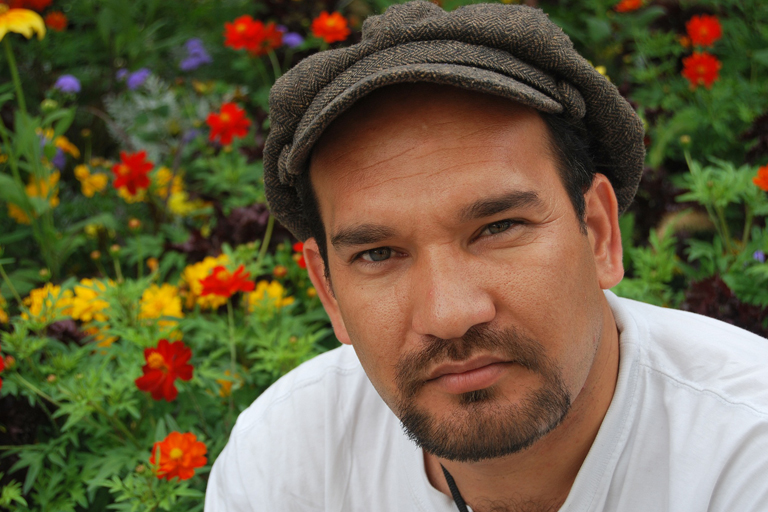 Hamed Alizadeh
Hamed Alizadeh -
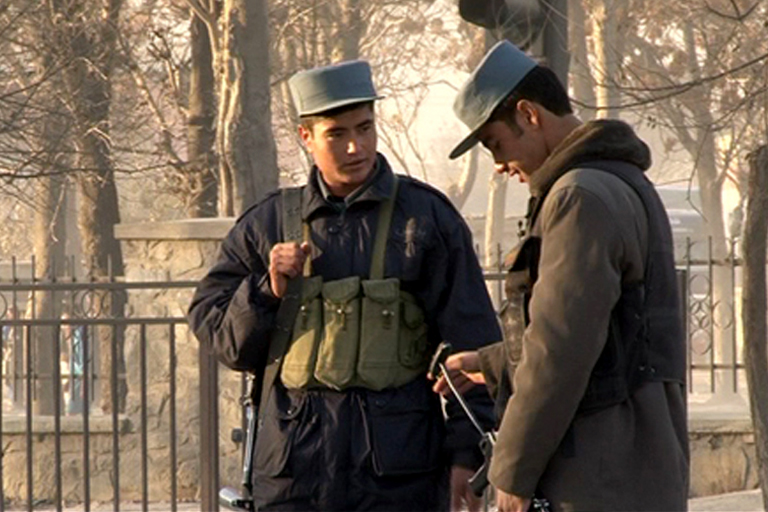 A still from Checkpoint
A still from Checkpoint -
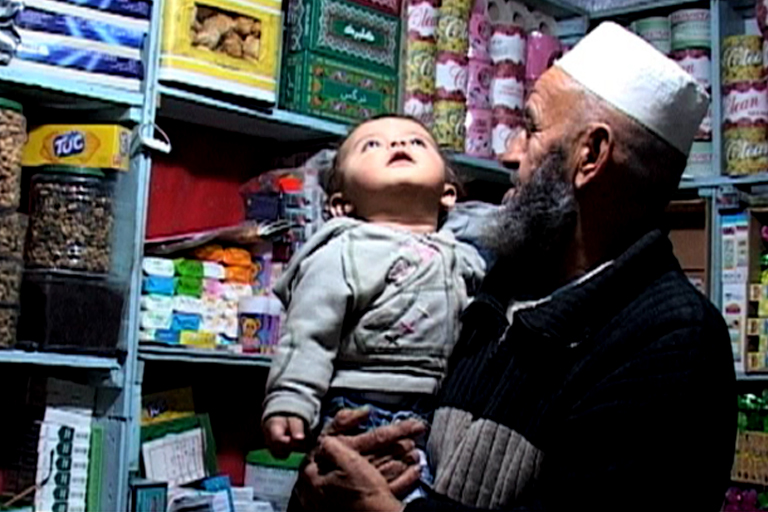 A still from A Time Called Oldness
A still from A Time Called Oldness
Voices from Afar is a series of interviews with filmmakers and film professionals, critics and experts from various countries around the world. The idea is to, through these voices, better our understanding of films and filmmaking communities which may seem alien at first glance, but whose joys and struggles, on closer examination, may have a deep resonance with our own.
33 year old Hamed Alizadeh, an Afghan documentary filmmaker, left his country after the Taliban took over and spent his formative years growing up in exile, in Iran. He returned to Afghanistan after the Taliban were ousted and enrolled in Kabul University’s Department of Theatre and Cinema in 2006, working simultaneously as a journalist for a weekly magazine. After graduating, he began making documentaries, which reflected Afghanistan’s social and cultural issues. His documentaries, Check Point, Afsanah, Memory Box and A Time Called Oldness, have been screened in film festivals around the world and broadcasted on Afghan as well as European TV channels. Also, Alizadeh currently heads the Afghanistan Documentary Filmmakers Organization, a first of its kind in the country, which fosters documentary filmmaking. In addition to this, he is the technical manager of the Afghanistan Human Rights Film Festival and teaches documentary filmmaking to students of cinema at the Kabul University.
During this interview, Alizadeh speaks slowly, as if deliberately weighing the meaning of each sentence. This helps, because we are in a noisy lobby of South Mumbai’s Metro theatre, which is packed with chattering, ebullient film enthusiasts. So, at times, Alizadeh asks for a question to be repeated to ensure he has understood it.
How did you come to be a filmmaker?
I started making films seven years ago. I started off as a journalist and worked with a magazine. Then I began making fiction films and then switched to making documentaries, and now I solely focus on documentary films.
What are some of the biggest challenges young Afghan filmmakers face?
Initially, we had a lot of technical problems while making films. But now we’re better in that respect. The biggest challenge right now is procuring money for making films, and broadcasting them on TV in Afghanistan and other countries. We also need local money for making films, especially for making feature films. The Government doesn’t support the filmmakers— neither monetarily nor in any other form.
What were the technical problems filmmakers faced initially and how did they get resolved?
Earlier, we didn’t have film schools in the country, and hence the crew often faced problems in technical departments such as sound, editing and cinematography. Afghan filmmakers had to go to countries such as Russia or India to learn filmmaking. Things further worsened when the Taliban took over Afghanistan. Everything stopped. It was a troubled time for making films. But, five years ago, Kabul University initiated a Department of Cinema— it’s a part of the Fine Arts faculty. But, there as well, almost all faculty members are young and it’s very new for them too. They face problems getting study material to teach from and there’s also a scarcity of teachers, so that also becomes a challenge. But, I recently heard that the University of Pune tried to help the Kabul University’s cinema department. So I hope this sort of help continues.
After the Taliban came to power in 1996, films were banned in the country. Even after the ban has been lifted, there’s hardly been any funding from the Government. How are films in Afghanistan financed?
Some filmmakers are supported by embassies, NGOs or international foundations. There are a few independent filmmakers who raise money themselves for their films. On the other hand, there are Pashtun films made on a very tight budget, where only actors and actresses are paid, and those films are sold straight to the DVD market for merely $ 1000 or $ 2000 per film. But, having said that, those films are very badly made. They look very immature and dated. Especially the fight sequences are shot in a way that makes those films look more than 70 years old. Also the new generation of filmmakers does not like to make such films. They want to make professional films, films which look modern, films which look international.
What are the kinds of international foundations that support films in Afghanistan?
The United Nations pays money for making films about human rights, women’s rights and agriculture, among other things. And some other foundations, such as the Human Rights Foundation, commission and fund films on human rights and on the country’s elections. Some European channels also make films in Afghanistan but they always have a ‘European journalistic’ point of view about Afghanistan— something that’s not real. But now even all of the European people know that looking at things through this point of view will not show you the truth. It’s wrong. You must make the film from an Afghan point of view not from a European journalistic point of view.
Could you elaborate a little on this foreign or European journalistic point of view?
There are many foreign journalists in Afghanistan and a lot of films have been made on the country. They capture different parts of Afghanistan, despite facing many security problems, and despite it being very expensive to make films here. But the filmmakers are unable to familiarize themselves with locals of the country. This is why they have a foreign journalistic gaze. When you are making a film you have to keep things real, you have to keep the characters real, but Western filmmakers can’t do that since it’s a very different culture from the one they come from themselves. So these filmmakers can’t really understand the common people of the country. Many people in Afghanistan are not happy about how their country has been portrayed in films abroad. Because, many a times, Western filmmakers have made propaganda films on Afghanistan. Be it about its society or culture…
But the young generation of Afghan filmmakers is making films and changing this point of view that’s been spread about Afghanistan’s culture and society through Western films. So, when these young Afghan filmmakers put forward their point of view through their films, the Western audience begins to understand.
Also I’d like to add that it’s easier for Western filmmakers to make films on a particular culture because they have money for broadcasting and making documentary films. They also have a huge audience that watches documentaries. But in Asia, in countries such as Afghanistan, Pakistan, and Iran, there are not a lot of people who watch documentaries. So sometimes even if an Afghan filmmaker wants to make films, especially documentaries, he will often be forced to adopt a European point of view because that’s where the money and the audience come from.
In the last 10 years, there have been a new lot of Afghan filmmakers. What are some crucial differences, to your mind, between them and the older filmmakers?
Before the Taliban many filmmakers, who studied filmmaking in Russia, were making films on 35mm. But the new generation of filmmakers is making films on digital and they’ve studied in Pakistan and Iran mostly. Some of them have studied in Europe. Also, the older filmmakers commanded a sizeable audience. When I was a kid films used to run for two months in theatres. Most importantly, before the Taliban rule, feature films would get made because the Government would fund those films. But now the filmmakers are mostly making short films because of a lack of funds. We don’t have money to make a feature film. Also, making a feature film needs experience in storytelling. And younger Afghan filmmakers lack the experience to tell such a story.
Afghanistan is still trying to find its place as a nation, trying to achieve some sort of stability. What kind of a role can cinema play in such times?
Cinema can play many roles. But I don’t know why the Government doesn’t want to support films in the country. 80% of the people in the country are uneducated— they can’t write or read. But if you want to inspire people or teach them you can make films, because they don’t need to read and write to understand films. Filmmaking is also very important because, just as in the past we had theatres, musicals, music and poetry for the poor people— now the place of these arts has to be taken by cinema, especially because everything is accessible on TV, DVD and also on the mobile, so watching films has become easy.
Also, cinema can be a mirror to citizens, for themselves and their country. Keeping this in mind, what kinds of stories really resonate with the Afghan filmmakers?
Seven to eight years ago, most Afghan films were about victims, wars and human rights. But, one can see a gradual change in the kind of films coming out from the country. Now, the younger generation of filmmakers wants to make films about love, society and culture.
What are your aspirations for Afghan cinema?
Afghan filmmakers must find a way to make independent films. And the new government must support the filmmakers in the country by funding films. Many filmmakers must also try to find international producers and co-producers. Afghan films should have a market, be it broadcasting on TV, or the cinema, or something else.
“A European journalistic point of view.”
InterviewNovember 2013
 By Tanul Thakur
By Tanul Thakur
Tanul Thakur is Junior Correspondent at The Big Indian Picture



